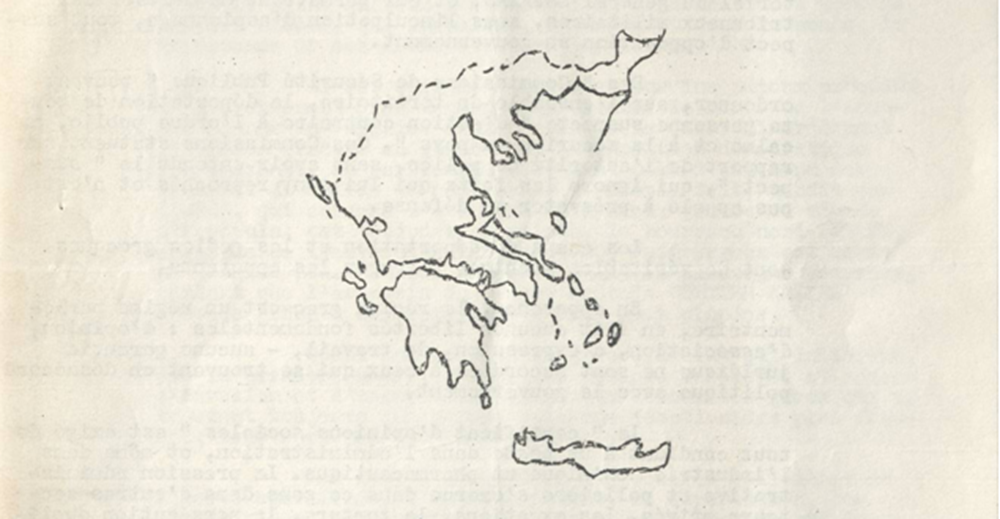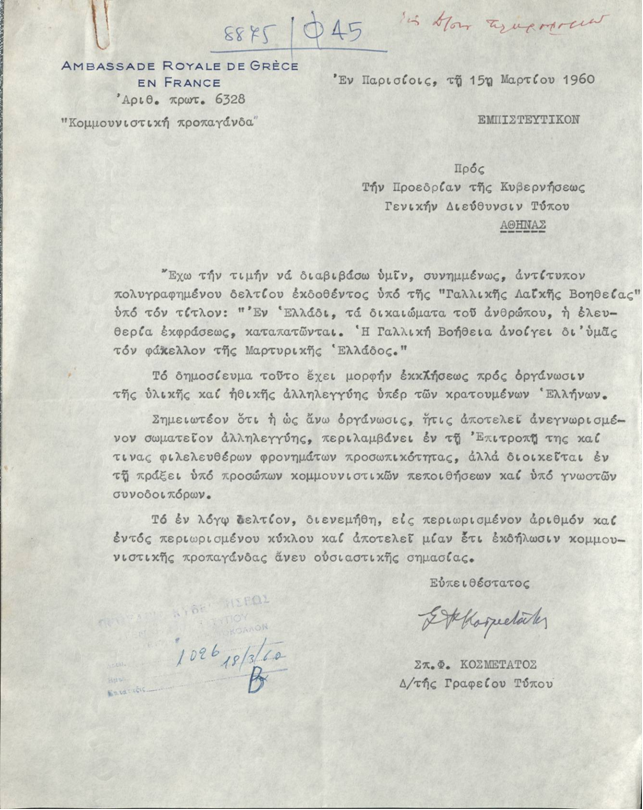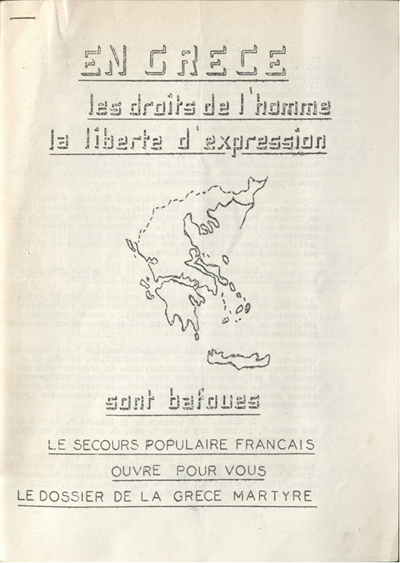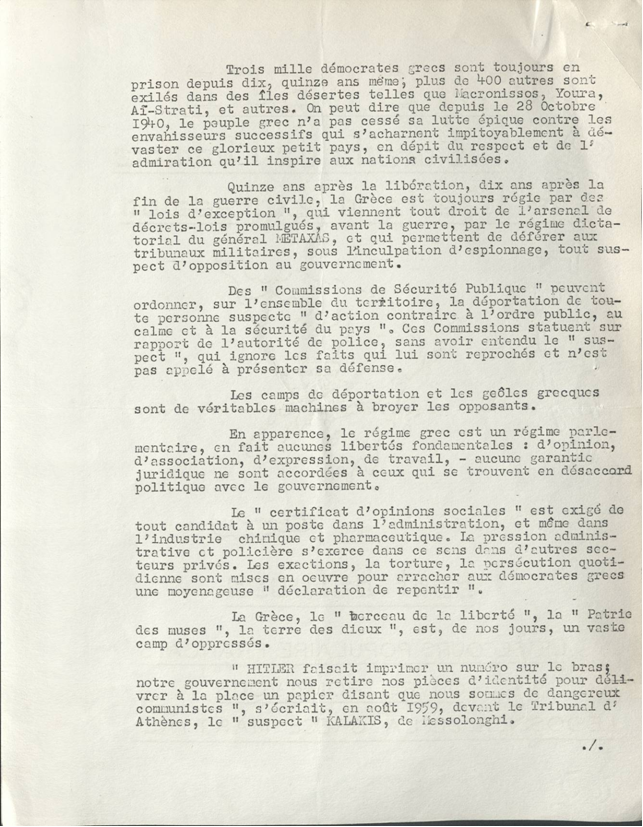
Despoina P. Papadopoulou
Department of Reading-Room and Archival Research
General State Archives, Central Service
Letter in, Greek typescript, from the archive of the General Secretariat of Press and Information, series Information Service, file 155. The letter from Paris of 15 March 1960 is addressed to the Presidency of the Government and more specifically to the General Direction of Press in Athens. It is signed by Sp. P. Kosmetatos, Head of the Press Office of the Greek Embassy at Paris. At the top right of the page is found the reference “ to Information Direction”. Also top right, below the date, we find the indication “CONFIDENTIAL”. Finally, to the left below the logo AMBASSADE ROYALE DE GRECE EN FRANCE is shown the protocol number and in inverted commas the title “Communist Propaganda”.
The purpose of the letter is to notify the Presidency of the Government of a “duplicated bulletin” six-page long, which is attached, published in French by the French Popular Aid (Le Secours Populaire Francais) entitled “In Greece human rights and freedom of expression are being infringed. The French Popular Aid opens for you the record of tortured Greece” (the translation of the title from French is by the Director of the Embassy’s Press Office).

The text of the letter by the Head of the Press Office of the Greek Embassy in Paris. GSA-Central Service, General Secretariat of Press and Information Service, file 155.
The French Popular Aid was founded in France in 1945 as a union of solidarity. One of its aims was to support people who were being persecuted for their political views. Among its activities are various publications.
This particular publication of the French Popular Aid, according to the Director of the Press Office: “has the form of an appeal for organising material and moral solidarity with imprisoned Greeks”.
The bulletin deals with the imprisonment and the exile of thousands of Greeks of democratic convictions. It goes over the period of Metaxas’ dictatorship and the courts-martial which convicted as spies all those who were suspected for opposing the government.
The authors remark that the regime in Greece is ostensibly parliamentary, yet those who oppose it politically are barred from all fundamental liberties (such as liberty of expression and liberty of employment). There is a special mention of the certificate of social beliefs “certificat d’ opinions sociales”, which is a prerequisite for employment in public administration as well as in other sectors.
It is worth noting that during the period when the letter was sent from the Press Office in the French capital there was in Greece a state of anti-communist alarm. The reason was that in the elections of 11 May 1958 the EDA (= Elliniki Dimokratiki Aristera, Greek Democratic Left), the party of the left, was elected as the leader of the Opposition with a percentage of 25%.

The French title of the duplicated bulletin of The French Popular Aid, which refers to the infringement of rights in Greece. GSA-Central Service, General Secretariat of Press and Information, Information Service, file 155.
It is in this atmosphere that Kosmetatos remarks with regard to the organisation’s members: “ the aforementioned organisation, which is a legitimate association of solidarity, comprises in its Committee some persons of liberal beliefs, but it is actually directed by individuals of communist convictions and by known comrades”. And he concludes “The present bulletin constitutes yet another manifestation of communist propaganda”.

The French bulletin’s long report of examples of political persecution in Greece. GSA-Central Service, General Secretariat of Press and Information, Information Service, file 155.
The particular publication of the French Popular Aid is a specimen of the francophone Press in favour of Greek civil rights in the 1960s. Various French newspapers (for instance L’ Humanite) publish articles about the political situation in Greece. Besides, after the imposition of the dictatorship of the colonels in 1967, Paris was an important gathering-point of dissenters. Their activity against the Greek regime included the appearance of a multitude of publications opposing the dictatorship.







Leave A Comment